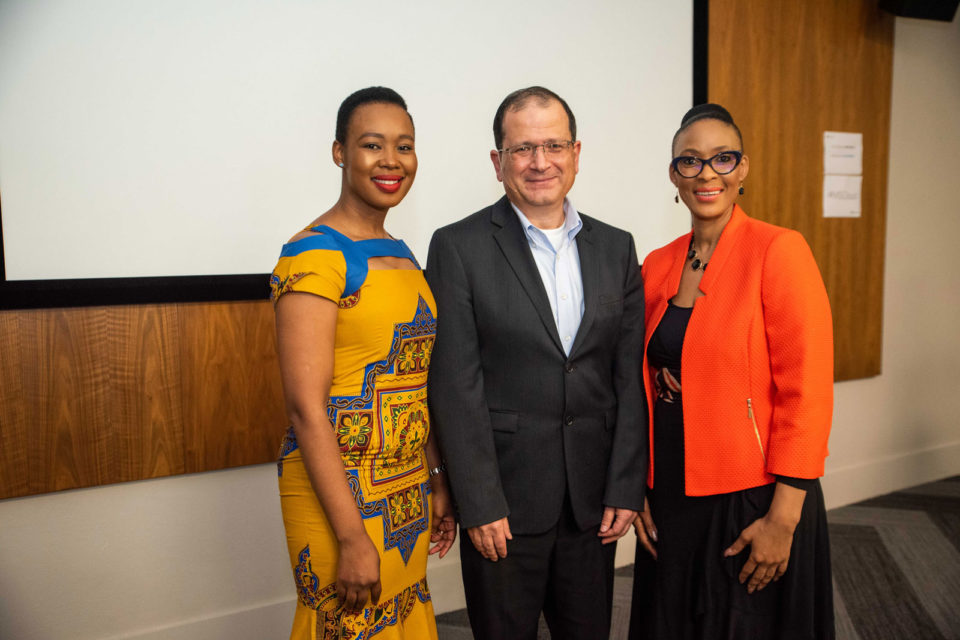Investment in infrastructure and skills development will help South Africa navigate the Fourth Industrial Revolution
JOHANNESBURG – 6 March 2019 – In a move that drives digital transformation and empowerment in South Africa, Microsoft announced a multi-million-dollar investment to create economic opportunities for South Africa through an Equity Equivalent Investment Programme (EEIP). In addition to the EEIP, Microsoft also announced the opening of new enterprise-grade datacentre regions in Africa, ensuring world-class cloud infrastructure that will power emerging cloud, AI and edge computing innovations across the continent.
The cloud is good for business
As part of the opening of the datacentres, Yousef Khalidi, corporate vice president of Azure Networking at Microsoft, announced that Microsoft Azure is available from Microsoft’s new cloud regions in Cape Town and Johannesburg.
“The combination of Microsoft’s global cloud infrastructure with the new regions in Africa will increase economic opportunity for organisations in Africa, as well as connect businesses across the globe through improved access to cloud and internet services,” Khalidi said, speaking at Microsoft’s South Africa headquarters in Bryanston. “In addition, the availability of Microsoft’s cloud services delivered from Africa will mean local companies can securely and reliably move their businesses to the cloud while meeting compliance requirements.”
According to a study from IDC, spending on public cloud services in South Africa will nearly triple over the next five years from R4.29 billion in 2017 to R11.53 billion in 2022, and the adoption of cloud services will generate nearly 112,000 net new jobs in South Africa by the end of 2022. The study also shows that increased utilisation of public cloud services and the additional investments into private and hybrid cloud solutions is enabling organisations in South Africa to focus on innovation and building “digital businesses at scale.” In turn, this enablement will help businesses generate close to R80 billion in new revenue over the next five years.
With this announcement, Microsoft has become the first global provider to deliver cloud services from datacentres on the continent. The company has announced 54 cloud regions worldwide, which is more than any other global provider. Azure is the first of Microsoft’s intelligent cloud services to be delivered from the new datacentres in South Africa. Office 365, Microsoft’s cloud-based productivity solution, is anticipated to be available by the third quarter of calendar year 2019, and Dynamics 365, the next generation of intelligent business applications, anticipated in the fourth quarter.
Microsoft’s EEIP reiterates its commitment to empowerment
In 2011, as part of its transformation approach, Microsoft committed to investing a percentage of the total revenue of the South African operation into its EEIP each year, over seven years.
This investment was ringfenced for the support of local Independent Software Vendors (ISVs). Recently, the EEIP evolved to help meet South Africa’s shifting socio-economic needs, as well as to take advantage of the economic opportunity presented by public cloud – and Microsoft cloud services being available from South Africa.
Newly appointed Microsoft South Africa managing director Lillian Barnard revealed that the Microsoft EEIP has evolved to include investment in technology solutions in agriculture and digital transformation in manufacturing – just two sectors where key government priorities and Microsoft focus areas overlap.
Microsoft’s EEIP is also funding skills development among South Africa’s young software developers, making them more employable, and there will be continued investment in the ISV sector to strengthen local South African intellectual property as well as accelerate their growth in the global market.
“The evolved EEIP demonstrates Microsoft’s commitment to digital transformation, skills development and experiential learning, as well as the enablement of innovation and technological advancement in South Africa. It economically benefits the country and demonstrates that we are investing in the right initiatives to ensure the inclusion, diversity and success in the digital economy,” Barnard said.
Barnard said both the evolved EEIP and the new Microsoft datacentres were indicative of how important South Africa was for Microsoft.
“We are already seeing great examples of how Microsoft’s investment in local innovation is having an impact on many of the partnerships we have with our customers in both the private and public sector. This will accelerate following today’s announcements. We believe that our investment is in the spirit of Thuma Mina and being part of South Africa’s new dawn, and it will mean more access to technologies and skills for many more people in this country,” Barnard said.





